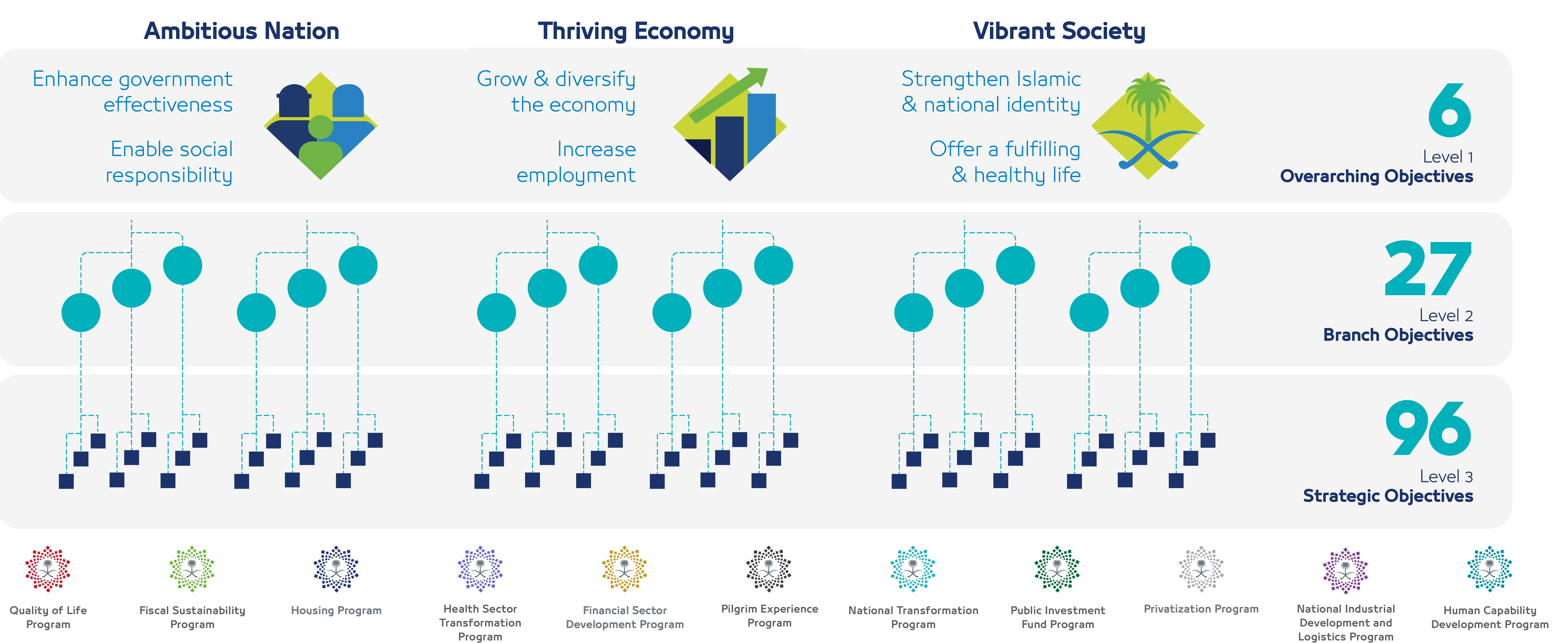Saudi Vision 2030: A Golden Opportunity for Cybersecurity Companies
Saudi Vision 2030 is a transformative economic and social reform blueprint that aims to reduce Saudi Arabia’s dependence on oil, diversify its economy, and develop public service sectors such as health, education, infrastructure, recreation, and tourism. As the Kingdom embarks on this ambitious journey, it is also investing heavily in digital transformation, making cybersecurity a critical aspect of its vision. For cybersecurity companies, Saudi Vision 2030 presents a unique and golden opportunity to expand into one of the most dynamic markets in the Middle East
Understanding Saudi Vision 2030
Unveiled in April 2016, Saudi Vision 2030 outlines the Kingdom’s long-term goals and expectations, as well as the
implementation programs designed to realize this vision. Key components include:
-
- Developing a Thriving Economy:
Fostering innovation, entrepreneurship, and the growth of the
private sector. - Attracting Foreign Investment:
Creating an attractive environment for international investors
through regulatory and economic reforms. - Enhancing Public Services:
Improving the quality and accessibility of healthcare, education,
and digital services. - Building a Digital Infrastructure:
Investing in smart city initiatives, e-governance, and
advanced ICT infrastructure.
- Developing a Thriving Economy:
The Role of Cybersecurity
As Saudi Arabia modernizes its digital infrastructure, the need for robust cybersecurity solutions becomes paramount.
Here are ways in which cybersecurity companies can align with Saudi Vision 2030:
-
- Protecting Digital Transformation Initiatives:
Saudi Vision 2030 emphasizes the creation of
smart cities and the digitization of public services. These initiatives involve massive amounts of data and
interconnected systems, making them prime targets for cyber attacks. Cybersecurity companies can offer advanced
solutions to protect these critical infrastructures from threats, ensuring the safety and reliability of smart
city projects and e-governance systems. - Enhancing Healthcare Security:
As part of Vision 2030, Saudi Arabia plans to significantly
improve its healthcare services, leveraging digital health technologies. Cybersecurity companies can provide
specialized solutions to protect sensitive patient data, secure electronic health records, and ensure the
integrity of telemedicine platforms. This helps build trust among citizens and healthcare providers in the
digital health ecosystem. - Safeguarding Financial Services:
With a focus on diversifying the economy, Vision 2030 also
aims to develop the Kingdom’s financial sector. This includes faster payments, mobile banking, and digital
wallets. Cybersecurity firms can offer solutions to protect financial transactions, prevent fraud, and comply
with regulatory requirements, fostering a secure environment that encourages financial innovation and inclusion. - Supporting Educational Innovations:
The reform blueprint includes boosting the education sector
through digital learning platforms and smart education systems. Cybersecurity companies can play a vital role in
protecting student data, securing online platforms, and ensuring safe and uninterrupted access to educational
resources.
- Protecting Digital Transformation Initiatives:
Market Entry Strategies for Cybersecurity Companies
To take full advantage of Saudi Vision 2030, cybersecurity companies need a strategic approach:
-
- Understand Local Regulations and Standards:
Navigating the regulatory landscape is crucial.
Understanding local data protection laws, cybersecurity standards, and compliance requirements will enable
companies to offer solutions that are not only effective but also compliant with Saudi regulations. - Build Local Partnerships:
Forming strategic alliances with local businesses, government
entities, and educational institutions can provide a competitive edge. These partnerships facilitate market
entry, enhance credibility, and enable access to local market insights and expertise. - Invest in Local Talent:
Saudi Vision 2030 emphasizes the development of local talent, including
in the cybersecurity field. Cybersecurity companies can benefit from investing in training programs,
certifications, and educational initiatives to build a skilled local workforce. This not only supports the
Kingdom’s goals but also ensures a sustainable business model. - Tailor Solutions to Regional Needs:
It’s essential to tailor cybersecurity solutions to meet
the specific needs and challenges of the Saudi market. This may involve adapting products and services to
address local threats, cultural considerations, and business practices. Customizing solutions ensures relevance
and effectiveness. - Leverage Government Support:
The Saudi government offers various incentives and support for
businesses that align with Vision 2030. Cybersecurity companies can leverage these opportunities, such as tax
incentives, funding programs, and regulatory support, to establish and grow their presence in the Kingdom.
- Understand Local Regulations and Standards:
Conclusion
Saudi Vision 2030 is more than a strategic plan; it is a call to action for global businesses, especially in the
cybersecurity sector, to contribute to and benefit from a transformative journey. By aligning their offerings with
the goals of Vision 2030, cybersecurity companies can play a pivotal role in securing the Kingdom’s digital future
while unlocking substantial growth opportunities. The convergence of ambitious reforms, digital growth, and the
rising prominence of cybersecurity makes this the perfect time for cybersecurity firms to establish and expand their
footprint in Saudi Arabia.



